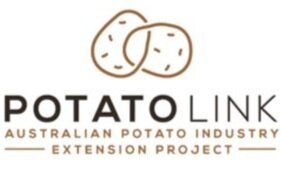Date: Friday 30 August 2024
Time: 11:00 am - 3:00 pm (including lunch)
Location: Gatton Research Station
107 John Howie Memorial Drive, Gatton, Qld
Registration: Click here to register
[Please register as numbers are required for catering]
Join American plant pathologist, Dr Amy Charkowski (Colorado State University), Praise Taddle (QDAF) and Shakira Johnson (AUSVEG) for an interactive workshop. You'll gain knowledge and practical skills to enhance your pest and disease management and biosecurity strategies.
Topics:
Enhancing biosecurity with practical tools
Presented by Shakira Johnson (AUSVEG)
Hear about the latest research on high-priority plant pests and biosecurity risk pathways. Explore practical tools for creating a basic biosecurity plan, including a new app designed to enhance biosecurity measures by capturing traceability data, assessing risks, and supporting other farm management practices such as paddock mappingBiological control options of Serpentine leaf miner
Presented by Praise Taddle (QDAF)
Discover effective biological control options for Serpentine leaf miner, including beneficial species that help manage this pest. Learn field techniques for monitoring beneficial populations, processing samples, and strategies for attracting and ensuring the survival of beneficial insects.Managing potato diseases
Presented by Dr Amy Charkowski (Colorado State University)
Gain insights from U.S. practices. Explore management strategies for controlling Blackleg and soft rots, Rhizoctonia, Early blight and Late blight and understand the impacts of weather on these diseases.Potato R&D idea session
Chaired by Jason Hingston (Hort Innovation)
Jason will lead the group in a session to get ideas and input for potential future Hort Innovation funded project. This session will be an open discussion on all topics except for diseases.
This workshop is open to vegetable and potato growers and agronomists for all sessions, however the disease session will focus on potato diseases. It will include lunch and conclude with drinks and the opportunity to talk with experts and fellow growers.
For more information, please contact: Naomi Diplock | 0403 740 123 | naomi.diplock@potatolink.com.au.
Meet the hosts:
-
Dr Naomi Diplock is a plant pathologist with 15 years research and university teaching experience. She enjoys working in diverse environments, from the cattle stations of the north Queensland outback, to farms in Bhutan and the vegetable production areas of the Lockyer Valley. These reflect Dr Diplock’s extremely varied research career, with projects on biological control of woody weeds, spider behavior, oyster mushroom production and vegetable pathology.
Naomi is based near Nambour, and coordinates PotatoLink activities in both southern and northern growing areas of Queensland.
-
Shakira coordinates the AUSVEG-PHA Farm Biosecurity Program, engaging with industry, research and government to enhance awareness, preparedness and resilience and minimise the impact of pests and pathogens not currently present or recently arrived in Australia. Shakira has a background in molecular plant pathology, data-driven decision-making to support area freedom claims and strategic coordination of cross-industry collaborative projects, research extension, and science communication.
Meet the speakers:
-
Professor of Plant Pathology and the Research Associate Dean, Colorado State University
From 2001-2016, she served as a faculty member in the Plant Pathology Department at the University of Wisconsin-Madison and as the administrative director of the Wisconsin Seed Potato Certification Program. She earned her B.S. from the University of Wisconsin-Madison and Ph.D. from Cornell University.
Charkowski’s research is mainly on plant pathogens that affect seed potato production or trade, including potato viruses, Spongospora subterranea, and soft rot bacterial pathogens of potato. She teaches graduate and undergraduate classes in IPM and plant pathology. She served as department head of Agricultural Biology from 2016-2023 and during this time the department doubled its research expenditures, and developed an undergraduate major in Agricultural Biology, a minor in Agricultural Data Science, and an online Masters in Pest Management.
Read about her research here.
-
Dr Frezzel Praise Tadle has been working as an agricultural entomologist and has a substantial background in integrated pest management (IPM). She has worked on biological control agents such as the egg parasitoid Telenomus sp. including the entomopathogenic fungi Metarhizium anisopliae. She also has a wealth of experience in extension work, field surveillance, and biosecurity incursion responses.
Praise has been involved in fall armyworm and serpentine leaf miner projects looking into different parasitoids, insecticide trial, and host preference.








